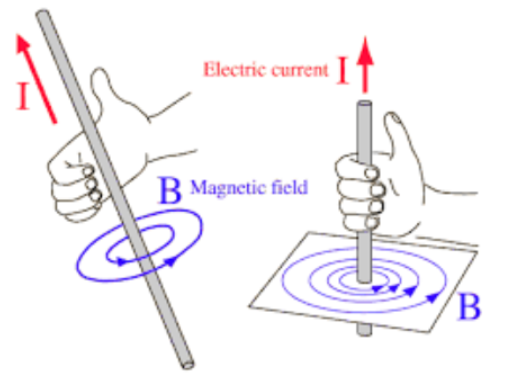
State Lenz’s law of electromagnetic induction.
Answer
584.1k+ views
Hint: To discover the kind of pole made in a loop, investigate curl from the end. If you see the current moving anticlockwise, at that point it is a north shaft; clockwise bearing shows a south pole.
Complete answer:
Simply envision that the letters N and S have bolt blemishes on the two closures. At that point the bolts point toward current around the curl.Lenz’s Law sets out the standard to discover the course of prompted current (or extremity of instigated emf). It expresses that the instigated current will be such a way as to restrict the change that caused it.
The north shaft of a bar magnet into a loop of wire, it will create a current in the curl (accepting the circuit is shut). This current will create the magnetic field in the curl. This field will contradict the north shaft coming into the loop. In the end, it will create a north shaft in that finish of the curl.

The prompted current will act to contradict the first movement. You get Lenz from Fleming.
Lenz's Law is certifiably not a key law. It is an immediate outcome that originates from both Fleming's Right and Left-Hand rules (not the grasp one, in spite of the fact that it might appear to state something very similar). Fleming's Rules are the essential standards of charge/field/movement/power collaboration.
Note:
The Left-Hand Rule shows the course of the power that comes from the above current flowing in the circuit and, subsequently, the resistance power to the first development. The last will be viewed as resistance to the first development when you apply everything effectively. This is Lenz's Law.
Complete answer:
Simply envision that the letters N and S have bolt blemishes on the two closures. At that point the bolts point toward current around the curl.Lenz’s Law sets out the standard to discover the course of prompted current (or extremity of instigated emf). It expresses that the instigated current will be such a way as to restrict the change that caused it.
The north shaft of a bar magnet into a loop of wire, it will create a current in the curl (accepting the circuit is shut). This current will create the magnetic field in the curl. This field will contradict the north shaft coming into the loop. In the end, it will create a north shaft in that finish of the curl.

The prompted current will act to contradict the first movement. You get Lenz from Fleming.
Lenz's Law is certifiably not a key law. It is an immediate outcome that originates from both Fleming's Right and Left-Hand rules (not the grasp one, in spite of the fact that it might appear to state something very similar). Fleming's Rules are the essential standards of charge/field/movement/power collaboration.
Note:
The Left-Hand Rule shows the course of the power that comes from the above current flowing in the circuit and, subsequently, the resistance power to the first development. The last will be viewed as resistance to the first development when you apply everything effectively. This is Lenz's Law.
Recently Updated Pages
Master Class 11 Computer Science: Engaging Questions & Answers for Success

Master Class 11 Business Studies: Engaging Questions & Answers for Success

Master Class 11 Economics: Engaging Questions & Answers for Success

Master Class 11 English: Engaging Questions & Answers for Success

Master Class 11 Maths: Engaging Questions & Answers for Success

Master Class 11 Biology: Engaging Questions & Answers for Success

Trending doubts
One Metric ton is equal to kg A 10000 B 1000 C 100 class 11 physics CBSE

There are 720 permutations of the digits 1 2 3 4 5 class 11 maths CBSE

Discuss the various forms of bacteria class 11 biology CBSE

Draw a diagram of a plant cell and label at least eight class 11 biology CBSE

State the laws of reflection of light

10 examples of friction in our daily life




